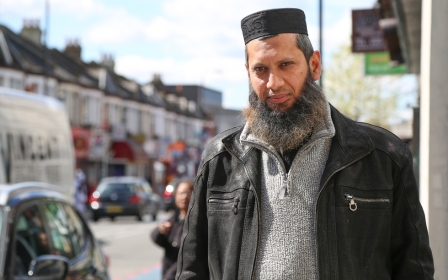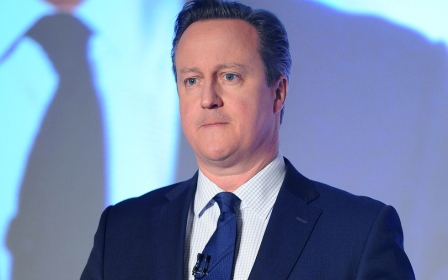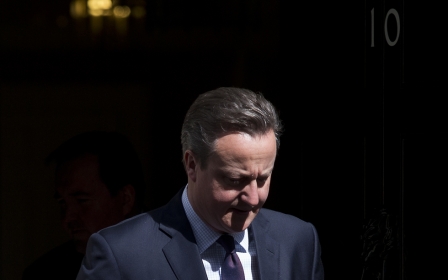Cameron in new attack on 'Conservative supporter' Suliman Gani

British Prime Minister David Cameron on Wednesday evaded calls to apologise to a London imam Suliman Gani who he last month accused of supporting the Islamic State (IS) group by attacking him in parliament once again.
Cameron’s latest remarks about Gani came during a sharp exchange at Prime Minister’s Questions with Jeremy Corbyn, the leader of the opposition Labour party, in which he also challenged Corbyn to deny that he was “friends” with Hamas and Hezbollah and accused the Labour leader of being soft on anti-Semitism.
Cameron also accused Sadiq Khan, Labour’s candidate in Thursday’s London mayoral election, of sharing platforms with “extremists”, including Gani, who is an imam in Tooting, the constituency in South London where Khan is an MP.
Gani last week called on Cameron to retract his claim that he “supports IS” and accused him of “defamation at its highest level”. Cameron, the leader of the Conservative Party, is protected from legal action over the remark by parliamentary privilege.
Gani subsequently revealed that he had attended Conservative Party events, while photos showed him posing with Zac Goldsmith, the Conservative mayoral candidate, and also on the steps of 10 Downing Street, the prime minister’s residence.
Responding to Corbyn’s jibe that Gani was an “active Conservative supporter”, Cameron replied: “Do you want to know the views of a person that your leader has just quoted? He described women as subservient to men. He said that homosexuality was an unnatural act. He stood on a platform with people who wanted an Islamic state.”
While Cameron did not repeat the assertion that Gani supported the IS group specifically, Downing Street has also come under scrutiny for subsequently claiming that he had spoken more generally in support of an Islamic state.
Asked by Middle East Eye’s Peter Oborne to provide evidence that Gani had done so, a Downing Street spokesperson cited a speech that Gani had made in Bedford in November last year subsequently uploaded to YouTube.
In an open letter to Downing Street this week published by MEE, Oborne said there was nothing in the video to suggest that Ghani supported IS.
“It would be utterly discreditable – indeed damnable - if the prime minister’s slur against Mr Gani were to remain on the record. He must either substantiate it, which I am certain he cannot do - or withdraw it, with a full apology,” Oborne wrote.
Cameron also attacked Corbyn over allegations of anti-Semitism within the Labour Party which has seen several members including Naz Shah, an MP, and Ken Livingstone, a former London mayor, suspended.
Labour has launched an investigation into anti-Semitism within the party, but Cameron said the inquiry would lack credibility unless Corbyn withdrew remarks made at a Stop the War rally in 2009 in which he had referred to Hamas and Hezbollah as his “friends”.
“I have made it very clear that Labour is an anti-racist party and that there is no place for anti-Semitism within it,” Corbyn said. “The point the prime minister makes relates to a discussion I was hosting to try to promote a peace process. It was not an approval of those organisations. I absolutely do not approve of those organisations.”
In a statement on Friday, Labour said Corbyn had “met many people with whom he profoundly disagrees in order to promote peace and reconciliation processes, including in South Africa, Latin America, Ireland and the Middle East.
“Jeremy Corbyn has been a longstanding supporter of Palestinian rights and the pursuit of peace and justice in the Middle East through dialogue and negotiation.”
Middle East Eye propose une couverture et une analyse indépendantes et incomparables du Moyen-Orient, de l’Afrique du Nord et d’autres régions du monde. Pour en savoir plus sur la reprise de ce contenu et les frais qui s’appliquent, veuillez remplir ce formulaire [en anglais]. Pour en savoir plus sur MEE, cliquez ici [en anglais].




